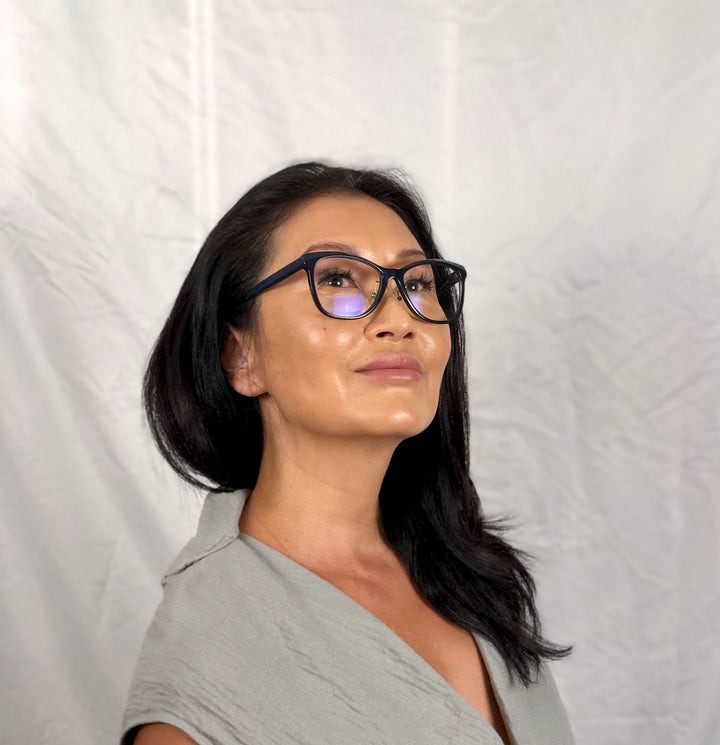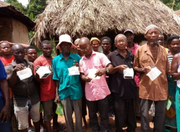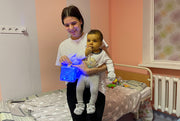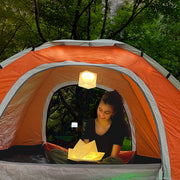
“A thriving rural population enriches any country’s culture and economy. We must have focus on these vibrant, rural communities and help energize their hope for a better future.” Dr. David Kargbo, CEO, EnviroOne
In a country of 7.8 million people, just 6.4% of Sierra Leone’s population has access to an electrical grid. According to the latest data, 10 - 12% of the population in urban areas have access to energy. In rural areas it’s less than 2%. For these rural villages, the primary light source is kerosene lamps. And, as we know, kerosene has been well documented as health, environment and fire risks.
For Sierra Leoneans, energy poverty is a stark reality and has resulted in lower standards of living, caloric intake, life expectancy, and literacy levels, especially in rural villages. Relative to other Commonwealth countries, this beautiful West African country has the lowest per capita income. Despite the good work and commitment from government, development and aid organizations and entrepreneurs, progress is slow. While we wait for infrastructure to be built, rural villages in Sierra Leone continue to fall behind.
So began the journey of world acclaimed scientist and Sierra Leonean, Dr. David Kargbo, on a mission to focus on improving lives in rural villages.

Who is Dr. David Kargbo?
Dr. Kargbo holds Masters and PhD degrees in Agronomy from the University of Nebraska. He is a former Fellow of the Food & Agricultural Organization of the United Nations, and Adjunct Professor of Environmental Engineering at Temple University. Dr. Kargbo served as the first Director of the Washington DC Groundwater Program. And was a Senior Scientist with the US Environmental Protection Agency for over 20 years, retiring in 2013. Dr. Kargbo has published extensively and was involved in several notable projects, including the review of a Bill & Melinda Gates Foundation initiative on converting sewage sludge to biodiesel in Ghana. He has also won several prizes as a result of his ground-breaking discoveries. Based on his outstanding contribution to science and society, Dr. Kargbo was inducted into the prestigious Marquis “Who Is Who In America”.
Yes, what you just read is essentially Dr. Kargbo’s CV. So truly impressive it was worth the run-down. And even more impressive, is Dr. Kargbo, as Co-Founder and CEO of EnviroOne, a non-profit organization dedicated to improving human development through agriculture, clean water, and education.

A Proud Sierra Leonean.
Born in the rural village of Lungi, David’s parents taught him the importance of education, hard work, and perseverance. His parents ensured he had access to education and David left Sierra Leone with a science degree and passion for the environment. Decades later, with his years of experience in environmental engineering and as an educator, David returned to Sierra Leone as Co-Founder of EnviroOne. The immediate goal was to help rural villages implement sustainable programs that could improve these communities as soon as possible. This meant access to clean water, more productive agriculture, and of course, education. Waiting for infrastructure to catch up was going to take too long. Dr. Kargbo and team believed they could start improving the lives of rural villagers almost immediately. Each small rural village on their way to a more sustainable life, could collectively add up to a more resilient community of rural Sierra Leoneans. And David was determined help these communities, and, do it differently.

All It Takes Is Three.
Agriculture. Clean Water. Education.
These are the main pillars of the EnviroOne framework for a sustainable future. Under the leadership and experience of Dr. Kargbo, the All It Takes Is Three systems approach integrates the three pillars of human development - food, health and knowledge. EnviroOne believes that in order to make a meaningful, long lasting difference in these rural villages, an integrated approach to community development based on the trifecta of human development must be fully embraced.
The village of Makeni Rockfola is a flagship example. Improvements in agriculture and food systems were achieved through improved access to seeds, fertilizer, land clearing and micro-financing. Clean water access was enabled with two new water wells and three retrofitted wells. Education programs to farmers, petty traders and within the community schools were implemented. This impact has extended to many more villages in Sierra Leone.

Let there be clean light. Now.
The lack of access to energy in rural villages however, remains an issue. Already well versed in the value of renewable energy, especially solar, Dr. Kargbo recognized the impact that Solar Lanterns could have as a clean source of light. At the suggestion of Natalie Kartz, a passionate member of the team, EnviroOne partnered with Solight Design in 2018 to raise funds to provide a small number of solar lamps to school children, farmers, and women in five villages. One year later, EnviroOne visited these communities to gauge the impact of the Solight project. They interviewed schoolchildren, teachers, and farmers and heard amazing feedback - “Thank you for rescuing our children”, “I wish we could have more of these lamps”, “We are now a better community”, and “I am breathing cleaner air now.” It confirmed to EnviroOne that rural villages did not need to be victims of energy poverty. Rather, they could bring Solights to these villages as individualized infrastructure. These communities did not need to wait for grids to be built and renewable energy systems to make their way to rural villages. The role of Solights in sustainable living was an easy and convenient solution to getting light and charging capability to these rural villages. This has now become a major part of the non-profit’s efforts.
“First of all I’m an environmental engineer by trade. The first thing to say is the design of these Solights is stellar. Easy to use. Bright. No mouth nozzle requiring villagers to inflate each unit, you know it makes it also hygienic and sanitary. So important. So important. And they are absolutely beautiful!” Dr. David Kargbo, PhD
So what’s next for EnviroOne in addition to more wells, more education, improved farming?
Lighting the way forward for 3 more rural villages.
- Makeni Rockfola, Marunia, Bandajuma.
- Population 1540.
- 287 smallholder farm families
- 3 schools, 650 school children
- Fundraising Target: 600 Solights.
By the end of 2020, Dr. Kargbo and the EnviroOne team hope to equip these villages with Solights that will shine brightly. And illuminate hope where there is darkness.






Leave a comment